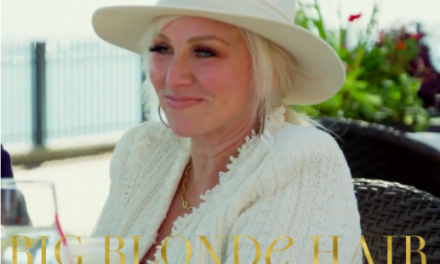
My relationship with alcohol began as a flirtation, evolved into a love story and then became a toxic relationship.
So toxic I had to end it and write a Goodbye to Alcohol letter.
We often think of a “binge drinker” as a teenager in a nightclub knocking back tequila shots, but in fact, the average binge drinker is more likely to be an older woman at home working her way through a bottle of wine.
After all, the definition of a binge is just four glasses of wine which was my nightly quota.
As so many of my contemporaries have also become dependent on alcohol, I decided to explore the science behind alcohol dependence.
How We Go from “Liking” to “Wanting” to “Needing” Alcohol
From the science, we can see how alcohol is able to do exactly what it’s been designed to do – get us hooked!
Flirtation – the Liking Phase
We learn to enjoy drinking with our friends at college and continue to socialise with alcohol as we get into our 20s. As we develop our careers and grow our families the wine becomes integrated into our busy lifestyle. Whether socialising with colleagues or using “mommy juice” to ease the stress of parenting, we learn to enjoy the quick fix that alcohol provides.
We can take a break if we need to and often do Dry January to prove to ourselves (and others) that we don’t have a problem. We enjoy drinking, and a glass (or two) in the evening isn’t going to do any harm…. or is it?
Let’s look at the science of what happens if we drink consistently between the ages of 20 and 40.
Understanding Endorphins and Dynorphins
Endorphins and Dynorphins are part of our natural opioid system and play an essential role in maintaining our equilibrium.
Endorphins are released every time we experience something pleasurable like hugging a loved one or laughing at a joke. Dynorphins do the opposite and are released to keep us from getting overexcited. To keep us in a balanced state – a state of homeostasis.
Drinking alcohol creates a large spike of endorphins which disrupts our natural equilibrium so our body releases dynorphins into the brain to get us back to homeostasis.
That’s why we feel good after that first drink but will feel that “buzz” wearing off after about 20 minutes. To keep our buzz going we’ll need another drink to combat the release of dynorphins but that doesn’t work for very long as our brain will just release another large dose of dynorphins.
That’s why we have to keep drinking if we want to keep the buzz going, and as the years go by, we have to drink more and more to get the same feeling. Our body is smart and is just doing its job which is to keep us in a state of equilibrium.
The Dangers of Drinking Consistently
Over time our body will adapt to the lessons we teach it.
This is where the true danger of drinking lies and why, if we drink consistently for a long enough period of time, the chances of us developing a dependence are almost guaranteed.
Why?
When alcohol causes the endorphin spike in the body, the brain likes it so much that it releases dopamine. Dopamine is the “learning and memory” neurotransmitter. When it’s released into our brain, our subconscious registers everything related to the release of that dopamine.
This means that over time our brain will not only begin to associate alcohol with the pleasurable feeling but also everything we do leading up to the drinking of alcohol.
So when we pass our favourite bar – or even walk in the house at the end of the day – we will be anticipating having a drink.
Which means that we’ve reached the second stage.
Love Story – the Wanting Phase
By this time, our body has become so used to our drinking that it starts to react to certain triggers.
More worryingly, it also begins to pre-empt triggers which create the need for alcohol.
For example, if you are used to opening a bottle of wine at 6 p.m., your body will be looking forward to that drink from 4 p.m. onwards – because it knows that a dopamine hit should be coming soon.
This can cause your body to release dynorphins in anticipation of the alcohol to come, so that if you don’t get that drink at 5 p.m. you’ll start to feel low and will need the alcohol just to get back into homeostasis.
This is how cravings start.
Then we go to the next phase.
Toxic Relationship – the Needing Phase
That’s when we begin to lose our ability to enjoy everyday pleasures.
Those years of consistent drinking have rewired our brain so that we can no longer produce dopamine naturally. Thus, things we used to enjoy no longer bring us joy. The only thing that brings us pleasure is alcohol.
That’s when the desire to drink becomes a must.
This process is a gradual one and can take many years. It sneaks up on you, and unless you are looking for it, you probably won’t notice it at all. Many people at this stage are still fully functional.
20 Years to Dependence
For many of us, dependence settles in somewhere between our 16th to 23rd year of drinking.
So, if we start drinking at 19, we’ll start to feel it as we hit 40. That’s when many of us start thinking about “cutting down” or “taking a break” and then to our surprise we find it much harder than we expected.
That’s because our brains and physiological make up have been so changed over the years that to quit drinking will take long-term focus and determination.
Willpower Won’t Work
It’s no good thinking that we can rely on willpower to quit drinking. If we’ve got to the “needing” stage, then we’ll have to reprogram our subconscious mind so that we no longer see alcohol as desirable.
That will involve surfacing and overturning the limiting beliefs that we hold about alcohol. That will involve changing our thinking about drinking.
Ready to Try an Alcohol Free Lifestyle?
When we make a major lifestyle change we need to connect with others on the same path. We need a Tribe! Tribe Sober has an international community of 400 members – all supporting and encouraging each other as they build their beautiful alcohol free lives. Use the coupon code “sixty” for a 20% discount on Annual Membership.
Listen to the weekly Tribe Sober podcast – available on Apple & Spotify.
Let’s Have a Conversation:
For how many years have you been drinking? Do you drink consistently – a glass or two of wine most evenings? Have you ever tried to take a break to test your dependence? Have you ever tried to quit completely? Do you ever worry about your drinking? Do you have trouble imagining your life without wine? Do you use wine to alleviate your stress? Are you aware of the health dangers of alcohol as you get older?





